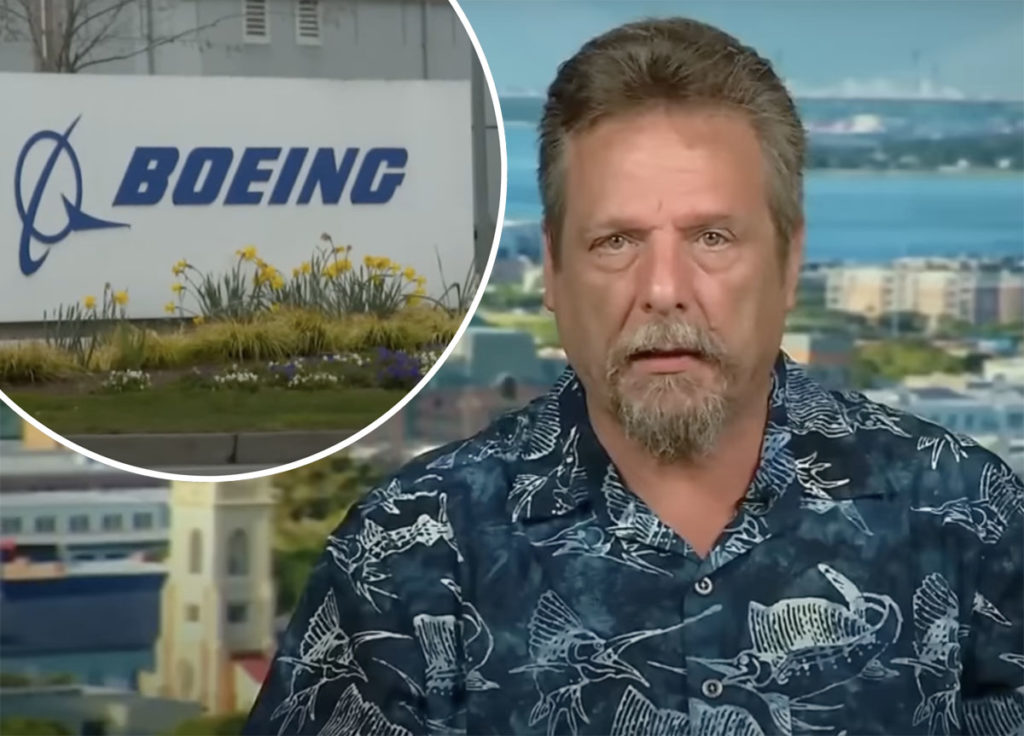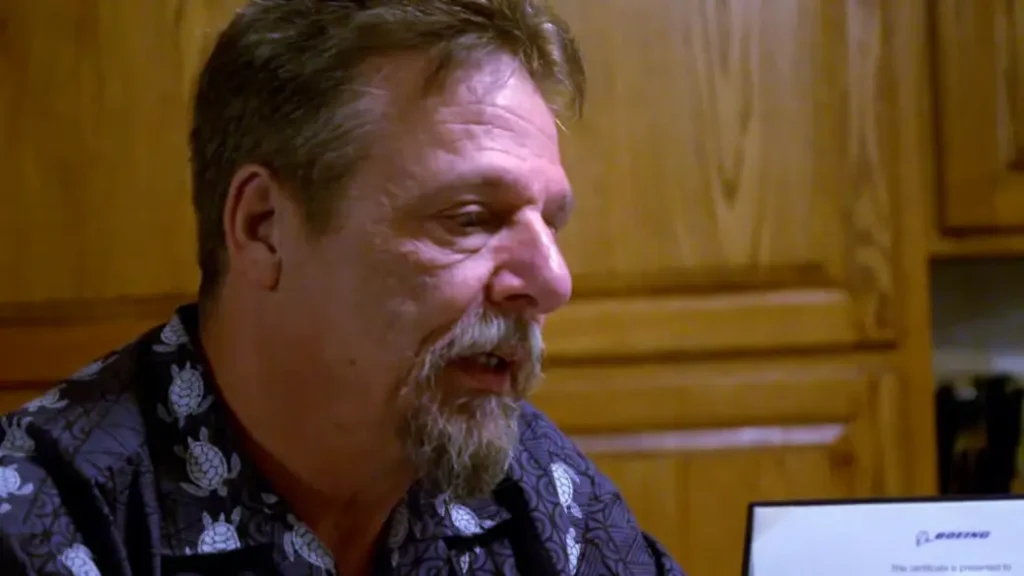Boeing has been in the spotlight again, but not for the right reasons this time. The family of a whistleblower who tragically died by suicide has filed a wrongful death lawsuit against the aviation giant. This case brings to light serious questions about corporate responsibility, mental health awareness, and the impact of whistleblowing on individuals and their families. The lawsuit accuses Boeing of negligence and failing to provide adequate support to the whistleblower during a critical time.
Imagine being in a situation where you feel compelled to speak out about unethical practices at your workplace, only to face isolation, stress, and even retaliation. This is exactly what the whistleblower allegedly experienced before taking their own life. The lawsuit claims that Boeing's actions—or lack thereof—contributed significantly to the tragic outcome.
The case highlights an important conversation about how corporations handle whistleblowers and the need for stronger protections. It’s not just about one person or one company; it’s about creating a culture where employees feel safe to report misconduct without fearing for their lives or livelihoods.
Read also:Hakari Femboy The Rise Of A Bold And Expressive Persona
Now let’s dive deeper into the details of this complex legal battle and explore what it means for both Boeing and the broader business world.
Understanding the Boeing Whistleblower Lawsuit
The wrongful death lawsuit filed against Boeing centers around the claim that the company failed to protect its employee, who was a whistleblower. According to the complaint, the individual exposed serious safety concerns within the organization, which allegedly led to intense pressure and a deteriorating mental state.
Boeing has faced scrutiny in recent years over safety issues with some of its aircraft, including high-profile accidents. The whistleblower reportedly highlighted these concerns internally, hoping for corrective action. Instead, they allegedly endured a hostile work environment and minimal support from management.
This lawsuit isn’t just about holding Boeing accountable for a single incident; it’s about setting a precedent for how companies treat whistleblowers. The family argues that Boeing should have done more to safeguard their loved one’s well-being, especially given the critical nature of the information being disclosed.
Who Was the Whistleblower?
Before we delve further into the lawsuit, it’s essential to understand who the whistleblower was and why their story matters so much. Below is a brief overview of the individual’s background:
Biographical Information
The whistleblower worked at Boeing for several years, gaining extensive knowledge of the company’s operations and safety protocols. They were highly regarded by colleagues for their dedication and integrity. However, their decision to speak out about potential risks came at a tremendous personal cost.
Read also:Oh Lort Madea The Ultimate Guide To Her Life Legacy And Impact
Below is a summary of their key details:
| Full Name | [Name Redacted for Privacy] |
|---|---|
| Age at Time of Death | 40 |
| Position at Boeing | Senior Safety Analyst |
| Duration of Employment | 12 Years |
| Key Contributions | Identified and reported multiple safety violations |
Their commitment to exposing the truth ultimately became their undoing, as the immense pressure proved too much to bear.
Corporate Responsibility in Whistleblowing Cases
One of the central arguments in this lawsuit is whether Boeing fulfilled its duty to protect the whistleblower. Companies often emphasize their dedication to ethical practices, but actions speak louder than words. In this case, the family contends that Boeing neglected their responsibilities in multiple ways:
- Failing to investigate the whistleblower’s claims thoroughly
- Not providing adequate mental health resources
- Allowing a toxic work culture to persist
These failures, the lawsuit argues, directly contributed to the whistleblower’s decision to end their life. It’s a stark reminder of the importance of corporate accountability and the need for companies to prioritize employee welfare.
The Impact of Whistleblowing on Mental Health
Whistleblowing can be a harrowing experience, especially when the individual faces backlash from their employer. Studies show that whistleblowers frequently encounter isolation, harassment, and career setbacks, all of which take a toll on their mental health.
In this particular case, the whistleblower reportedly suffered from severe anxiety and depression after reporting safety concerns. Despite seeking help, they allegedly found little support from Boeing, leaving them feeling abandoned and hopeless.
This highlights the urgent need for better mental health policies in the workplace, particularly for those in high-stakes positions like whistleblowers. Companies must recognize the psychological burden of speaking out and provide comprehensive support systems to mitigate these effects.
Legal Precedents and Implications
The Boeing whistleblower lawsuit could set important legal precedents for future cases. If successful, it may force other companies to rethink how they handle whistleblowers and the consequences of ignoring their concerns.
Key Legal Issues at Stake
Several legal questions arise in this lawsuit:
- Did Boeing act negligently by failing to address the whistleblower’s safety concerns?
- Is the company liable for the whistleblower’s suicide due to their inaction?
- What responsibilities do corporations have to protect whistleblowers under the law?
These questions have broader implications for corporate governance and employee rights. A favorable ruling for the plaintiff could lead to stricter regulations and increased protections for whistleblowers across industries.
Boeing’s Response and Defense
Boeing has yet to issue an official statement regarding the lawsuit, but past responses to similar allegations suggest they will likely deny any wrongdoing. The company may argue that they did everything within their power to support the whistleblower and that their suicide was an unfortunate but unrelated event.
However, the family’s attorneys have presented evidence suggesting otherwise, including internal communications that allegedly demonstrate Boeing’s dismissive attitude toward the whistleblower’s concerns. The outcome of the case will depend heavily on how convincing this evidence is in court.
Public Reaction and Media Coverage
The lawsuit has garnered significant media attention, sparking widespread debate about corporate ethics and whistleblower protections. Many people have expressed sympathy for the whistleblower’s family, while others have called for greater transparency in corporate decision-making processes.
Social media platforms have been abuzz with discussions about the case, with hashtags like #BoeingWhistleblower and #CorporateAccountability trending. This public discourse underscores the growing demand for accountability in the business world.
What Can Be Done to Prevent Future Tragedies?
Preventing similar tragedies requires a multi-faceted approach involving both legal reforms and cultural shifts within organizations. Here are some steps that can be taken:
- Strengthen whistleblower protection laws to ensure greater safeguards
- Implement mandatory mental health training for managers and HR personnel
- Create anonymous reporting channels to encourage open communication
- Hold companies accountable for creating supportive work environments
By addressing these issues proactively, businesses can foster a culture of trust and transparency, reducing the likelihood of future incidents.
Lessons for Other Companies
The Boeing whistleblower lawsuit serves as a cautionary tale for all organizations. It highlights the dangers of ignoring employee concerns and the potential consequences of failing to support whistleblowers.
Companies should take this opportunity to reassess their own policies and practices, ensuring they align with ethical standards and legal requirements. Prioritizing employee well-being and fostering a culture of openness can go a long way in preventing similar tragedies.
Conclusion
The wrongful death lawsuit filed by the family of the Boeing whistleblower shines a spotlight on critical issues surrounding corporate responsibility, mental health, and whistleblower protections. While the outcome of the case remains uncertain, it has already sparked important conversations about how companies treat their employees.
As we continue to follow developments in this case, let’s remember the human cost of whistleblowing and advocate for changes that make workplaces safer and more supportive. If you’re moved by this story, consider sharing it with others or exploring resources that help protect whistleblowers.
Together, we can push for a future where speaking truth to power doesn’t come at such a devastating price.
Table of Contents
- Understanding the Boeing Whistleblower Lawsuit
- Who Was the Whistleblower?
- Corporate Responsibility in Whistleblowing Cases
- The Impact of Whistleblowing on Mental Health
- Legal Precedents and Implications
- Boeing’s Response and Defense
- Public Reaction and Media Coverage
- What Can Be Done to Prevent Future Tragedies?
- Lessons for Other Companies
- Conclusion


